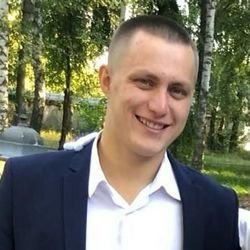‘One needs to be a millionaire to start a business in the countryside’
Young farmers of Tatarstan about key problems of rural entrepreneurship
Today many districts of Tatarstan are concerned about how to keep the youth in the countryside. The majority wants to settle in cities after graduating from university. But a positive trend has been seen recently — more and more young people return to their birthplace, while some try to open their own business. Young farmers told Realnoe Vremya about where to get a relocation allowance, what to start a business with — main problems they had to face at the beginning.
From electrician to farmer
Bulat Khismatov is 26. He was born and grew up in Maly Atmas village, Rybnaya Sloboda District. His father Agzyam Khismatov is a renowned harvester driver in the republic. He has hold the lead in grain threshing in his category in Tatarstan for the last three years.
Bulat graduated from Kazan Power Engineering University in 2018 and immediately started to work at Kazan Electric Networks enterprise, which is part of Grid Company, in a quick response team of electricians. He went back to the village after three years of work.
“I love the countryside, it has never let me go. I work at Grid Company in shifts, this is why I decided not to stay in the city but live at home and come to Kazan for the next shift. I spent the day after the night shift and two days off in Maly Atmas. Moreover, my parents needed my help. Our family has always had a small household. We have done everything with our own hands.”
After three years spent in the capital, Bulat Khismatov decided to dedicate himself to agriculture and return to his village.

Bulat Khismatov admitted that it was quite difficult for a young person to take out a loan. Many have problems first. The bidding farmer explained the unwillingness to take out a target loan in a specialised bank because there was too much paperwork:
“We managed to take out a consumer loan. I didn’t take out a special loan for young farmers because it has too many conditions. First of all, such loans have a target. You have to become a sole trader, work for a year, it is necessary to submit a tax report to confirm your income, only then they can grant you a loan in a special programme. Again, everything must be spelt out on paper. For instance, if money is borrowed for construction, you must sign a contractor with every supplier, and this document needs to be provided and so on. In a word, it is a tough process.”
By Bulat Khismatov’s estimate, the first stage of farm construction needed about 2.5 million rubles. Including the fact that it was built on their own — with the help of their family members, relatives, friends, acquaintances. They had 20 head of livestock first, they bought another 12 after building the farm. In 2022, the rural entrepreneur applied for Agrostart-up programme and won a grant of 3 million.
“I think it isn’t difficult to get a grant at all. If you meet parameters, all documents are okay, there is land, a household and money, there won’t be a problem. We managed to buy equipment and calves with the grant’s money.”
Now Khismatov’s farm has 60 head of livestock, 34 of which are milch. A cow provides 18 litres of milk a day. The milk is collected by milk collectors. They don’t process it. Bulat admitted that it would be more profitable but required too much effort.
“Not very good news awaited us in March — milk price was lowered again. If earlier it was collected for 29 rubles per litre, now the price dropped by 2 rubles at once — to 27 rubles per litre. It is very notable for us. We know the price has fallen in all the districts. We are explained that the demand is low and supply is too high. It is said that there is a lot of milk, while the market has decreased. Also, we have been warned that the price will fall more. They don’t yet say how much and when it will happen. As usual, they will simply be presented with the fact. We understand it isn’t the fault of milk collectors. Factories fix the price. We will lose about 20,000 rubles a month after the price of a litre of milk goes down.”
Nevertheless, this year Bulat Khismatov plans to increase the number of milch cows and continue working. He doesn’t yet make grandiose plans. It is not the time, he says.
“I made my choice”
Dinar Sargazin is 22, he graduated from Kazan Federal University’s Department of Information Technologies. But he didn’t start working by trade and decided to get another degree and entered the Veterinary Academy to obtain a Master’s Degree.
“This is necessary for my work. I chose Veterinarian and Sanitary Inspection. There appeared an opportunity to continue studying and I decided to take advantage of it to get another degree. I plan to settle in my village.”
The Sargazins started a family business when Dinar was 7. The young man created his own farm in 2021.

The young farmer received 3 million 330,000 rubles from the state. He bought 100 head of oxen and MTZ-82 tractor.
“The business plan reads that we need to produce 10 tonnes of meat a year. Also, according to the programme’s terms, the livestock has to increase every year. We increase it by about 50 head every year.”
In answer to the question what difficulties can appear if the young man wants to start a business in the countryside, Dinar replies that first of all, there must be support. Some financial foundation, basis is needed:
“I think at least a million is needed to start with. One needs to have money — 330,000 rubles — even to win a grant in the Agrostart-up programme. There must be motivation, a desire to work. Laziness and countryside are not compatible. And the third condition is to choose the correct area of activity. I think in theory one can live in the countryside and do the work in the village remotely. But I chose another path. I plan to move to the countryside, buy or build a house in my village.”
Dinar plans to use a state housing subsidisation programme for young families in the countryside. The young man admitted that a few days earlier he proposed his girlfriend and she said ‘yes’:
“She is from Aznakayevo, now studying at the construction university in Kazan. We haven’t discussed yet where we will live but I hope to have her on my side. None of my friends has moved to the countryside to start living and working there. Many of them have lived in the city all their life and don’t even imagine a rural lifestyle. Most of my friends work in the office from eight to five. I think the youth don’t go to the countryside because there aren’t jobs. Collective farms don’t exist now, for example. But on the other hand, would they go to the collective farm if it existed? Rather no than year. Now it is hard to understand youngsters. Everybody wants everything here and now. The one who hasn’t worked from childhood, hasn’t gone up from the bottom, won’t understand the value of labour and money earned.”
According to the Russian Statistics Service, the population of Tatarstan has dramatically urbanised in the last 10 years. The census held in 2020 says that 3,074,048 Tatarstan people live in cities, 930,761 do in the countryside. The problem of youth outflow was discussed at the 11th Russian Tatar Countryside Entrepreneurs Congress. Young businesspeople themselves explained the cost of staying in the countryside and starting their own business.
A contest to participate in the Agrostart-up programme recently ended in Tatarstan. 76 aspiring agriculturists became winners. The Tatarstan Ministry of Agriculture says that in 2022 Tatarstan farmers received 158.9 million rubles of grants. 68 in 94 applicants won the competition last year. Grants totalled from 1.5 to 4 million rubles.
Two national projects are implemented in the republic. Farmers and cooperatives are supported by the regional project SME Acceleration. The project is funded in three areas: Agrostart-up, subsidies for agricultural consumer cooperatives to compensate for part of expenses and co-financing of costs by the Competence Centre for Agricultural Cooperation in the Republic of Tatarstan.
Regions programmes are implemented within the national project Small and Mid-Sized Entrepreneurship and Support for Entrepreneurial Initiative. The head of a farm is awarded a grant to buy land and equipment, build and update agricultural facilities.